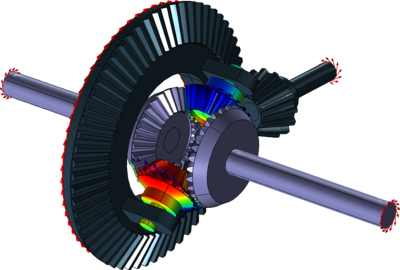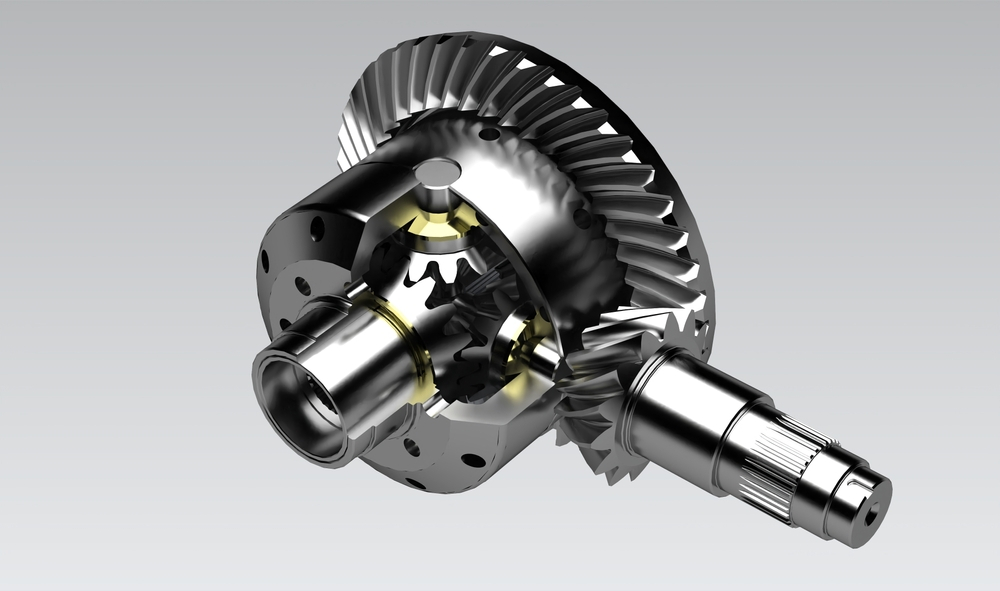Product Description
Product Description
| Product name | Custom Stainless Steel Standard Helical Gear Differential |
| Material | Brass , Stainless Steel,Aluminum,Steel or According to customer’s requirements |
| Brand Name | DKL |
| Color and size | OEM |
| Place of Origin | ZheJiang |
| Process | CNC Maching/PM |
| Feature | Precision |
| Packing | Carton Packing |
Company Profile
HangZhou Dakunlun Hardware & Plastic Products Co.,Ltd. is a company engaged in Custom Products covering Custom CNC,Plastic Injection,Powder Metallurgy Parts ect. Hot Selling products include Gears,CNC Milling Parts Model Train Wheelsets Shaft,Bushing,Spacer and Brass Turning Parts ect.
Dakunlun was established in May 2006, cooperated with many enterprises at home and abroad (such as Fenda ,LG, Philips Dji and Nissan) to establish a long term friendly business relationship.Our inception is to absorb a variety of talents, improve product quality and staff quality Strict quality guarantee system and perfect management system, high-quality products after-
sales service is our foothold. Our company of “quality first, reputation first” principle, provide customers with quality and quantity of various types of products. Always uphold the “quality, integrity and pragmatic, motivated, service-oriented” business philosophy, and apply to the company’s management and operating. In face of fierce competition, our company’s system is constantly being improved, relying on science and technology, continuously improve the technology content of products sold, for society, customers and companies to create a higher market value. Dakunlun has been in good faith to create enterprises and has won a good reputation, also won the respect of our domestic counterparts.
Recent years our company has reached annual sales of as much as ¥30,000,000, Dakunlun will expand the scale of operation and steady development of corporate economic, sincerely seek partners, good faith cooperation and common developmen
Certifications
Work Shop Facility
Customer Visit
Packaging & Shipping
FAQ
1. Are you trading company or manufacturer?
We are a factory has 20 years.
2. How can i get a quotation?
Please send us information for quote: drawing,material,quantity or other requirement.We can accpet PDF,DWG,STEP file formate.If you don’t have the drawing,please send the sample to us,we can quote base on your sample too.
3. What’s your MOQ?
Depends on your specific items.
4. Do you provide samples?Is it free or extra.
Yes,but it’s not free.
5. What about the lead time for mass production?
Honestly,it depends on the order quantity.Normally,15 days to 20 days after your deposit if no tooling needed.
6. What if the part is not good?
We can guarantee good quantity.But if happened,please contact us immediately,take some pictures,we will check on the problem,and solve it asap.
7. How to deliver the good?
We deliver the products by courier company.
8. Can we get some samples before mass production?
Absolutely yes.
9. Will my drawings be safe after sending them to you?
Yes,we will keep them well and won’t release them to the third party without your permission.
/* January 22, 2571 19:08:37 */!function(){function s(e,r){var a,o={};try{e&&e.split(“,”).forEach(function(e,t){e&&(a=e.match(/(.*?):(.*)$/))&&1
| Application: | Motor, Machinery, Marine, Agricultural Machinery |
|---|---|
| Hardness: | Hardened Tooth Surface |
| Gear Position: | External Gear |
| Manufacturing Method: | Cut Gear |
| Toothed Portion Shape: | Helical |
| Material: | According to Customer′s Requirements |
| Samples: |
US$ 10/Piece
1 Piece(Min.Order) | |
|---|
| Customization: |
Available
| Customized Request |
|---|

Can you provide examples of vehicles that use differential gears?
Differential gears are utilized in various types of vehicles to enable smooth and efficient power distribution to the wheels. Here are some examples of vehicles that use differential gears:
1. Passenger Cars:
Most passenger cars, including sedans, hatchbacks, and SUVs, are equipped with differential gears. These gears are typically found in the rear axle of rear-wheel-drive vehicles or in both the front and rear axles of all-wheel-drive vehicles. Differential gears allow the wheels to rotate at different speeds while maintaining power transfer, ensuring smooth cornering and traction on different road surfaces.
2. Trucks and Pickup Trucks:
Trucks and pickup trucks commonly employ differential gears to enhance their performance, especially for towing, hauling, and off-road applications. Rear-wheel-drive trucks utilize differential gears in the rear axle, while many modern trucks also feature all-wheel-drive or four-wheel-drive systems with differential gears in both the front and rear axles. These differential gears enable improved traction, power distribution, and maneuverability in various driving conditions.
3. SUVs and Crossovers:
Sport utility vehicles (SUVs) and crossovers often incorporate differential gears to provide enhanced off-road capability and all-weather performance. Many SUVs are equipped with all-wheel-drive or four-wheel-drive systems that utilize differential gears in the front and rear axles. These gears allow power transfer between the wheels and enable optimal traction on different terrains, making SUVs well-suited for off-road adventures and challenging driving conditions.
4. Sports Cars and Performance Vehicles:
Sports cars and high-performance vehicles often employ advanced differential systems for improved handling, stability, and performance. Examples include limited-slip differentials, electronic differentials, or torque vectoring differentials. These systems use differential gears in combination with advanced technologies to distribute torque to the wheels based on driving conditions, enhancing traction, cornering ability, and overall vehicle dynamics.
5. Off-Road Vehicles and SUVs:
Differential gears are essential components in off-road vehicles designed for rugged terrains and extreme driving conditions. Vehicles such as dedicated off-road SUVs, trucks, and specialized off-road vehicles like Jeeps and Land Rovers utilize differential gears, including locking differentials, to maximize traction and improve off-road performance. These gears allow for better wheel articulation, independent wheel movement, and power distribution to overcome obstacles and maintain traction on challenging off-road trails.
6. Commercial and Heavy-Duty Vehicles:
Commercial trucks, buses, and heavy-duty vehicles utilize differential gears to handle the demands of heavy loads and challenging driving conditions. Differential gears in these vehicles help distribute torque to the drive wheels efficiently, ensuring better traction, stability, and power transfer. They are critical for the performance and safety of large commercial vehicles that operate under varying load and road conditions.
7. Racing Cars:
In racing, differential gears play a vital role in enhancing performance and handling characteristics. High-performance racing cars, including Formula 1 cars, rally cars, and sports prototypes, utilize advanced differential systems that allow precise control of power distribution to optimize acceleration, cornering, and stability during high-speed maneuvers.
In summary, differential gears are utilized in a wide range of vehicles, including passenger cars, trucks, SUVs, sports cars, off-road vehicles, commercial vehicles, and racing cars. These gears are integral to achieving optimal power distribution, traction, and maneuverability in various driving conditions and applications.

What are the considerations for choosing the right type of differential gear for a vehicle?
When selecting the appropriate type of differential gear for a vehicle, several considerations come into play. Choosing the right differential gear involves assessing factors such as vehicle characteristics, intended use, driving conditions, and desired performance. Here’s a detailed explanation of the considerations for choosing the right type of differential gear:
- Vehicle Type: The type of vehicle, whether it’s a passenger car, SUV, truck, or performance vehicle, plays a significant role in determining the appropriate differential gear. Different types of vehicles have varying weight distributions, power outputs, and handling characteristics, which influence the optimal choice of differential gear.
- Driving Conditions: The intended driving conditions are crucial in selecting the right differential gear. Factors such as road surface, weather conditions, and terrain should be considered. For example, vehicles driven primarily on paved roads may benefit from different differential gear options compared to off-road vehicles that frequently encounter challenging terrain or vehicles that operate in regions with snowy or icy conditions.
- Performance Requirements: The desired performance attributes of the vehicle are important considerations. Some drivers prioritize acceleration and high-speed performance, while others focus on off-road capabilities, towing capacity, or fuel efficiency. Differential gears can be chosen to optimize specific performance aspects, such as maximizing traction, improving handling, enhancing torque delivery, or achieving better fuel economy.
- Traction Needs: The level of traction required is a key factor in selecting the right differential gear. Vehicles that need maximum traction in challenging conditions, such as racing cars, off-road vehicles, or vehicles used in low-grip environments, may benefit from limited-slip differentials or locking differentials. These differential types help distribute power to the wheels with the most grip, enhancing traction and maintaining vehicle control.
- Driving Dynamics: The desired driving dynamics and handling characteristics also influence the choice of differential gear. Some drivers prefer a more predictable and balanced handling, while others may desire more aggressive cornering capabilities. Differential gears with specific characteristics, such as torque vectoring differentials, can enhance these driving dynamics by actively managing torque distribution between individual wheels.
- Budget: Cost considerations are also significant when choosing a differential gear. Different types of differential gears vary in terms of complexity, features, and pricing. It’s essential to evaluate the budget constraints and weigh the cost against the desired performance benefits and requirements.
In summary, selecting the right type of differential gear for a vehicle involves considering factors such as vehicle type, driving conditions, performance requirements, traction needs, driving dynamics, and budget. By carefully assessing these considerations, drivers can choose a differential gear that aligns with their vehicle’s characteristics, intended use, and performance objectives, ultimately enhancing traction, handling, and overall driving experience.

What are the functions of a differential gear in a vehicle?
A differential gear in a vehicle serves several important functions. Here’s a detailed explanation:
1. Torque Distribution:
One of the primary functions of a differential gear is to distribute torque (rotational force) from the engine to the wheels. As the engine generates power, the differential ensures that it is transmitted to the wheels efficiently and effectively. By dividing the torque between the two wheels, the differential enables both wheels to receive power and propel the vehicle forward.
2. Differential Action:
The differential gear allows the wheels to rotate at different speeds when the vehicle is turning or when one wheel encounters different traction conditions. This differential action is crucial for smooth and controlled maneuvering. By enabling the outer wheel to rotate faster than the inner wheel during a turn, the differential allows the vehicle to negotiate corners without binding or skidding.
3. Wheel Speed Compensation:
When the vehicle is turning, the inside wheel travels a shorter distance compared to the outside wheel. Without a differential, this speed difference would cause significant drivetrain stress and tire wear. The differential gear compensates for the varying wheel speeds by allowing the wheels to rotate at different speeds, ensuring smooth operation and minimizing strain on the drivetrain components.
4. Traction Improvement:
In situations where one wheel loses traction, such as when driving on slippery surfaces or uneven terrain, the differential gear helps improve traction. By allowing the wheel with traction to receive more power, the differential ensures that the vehicle can continue moving forward. This is particularly important in vehicles with two-wheel drive, as the differential helps optimize power delivery to the wheel with better traction.
5. Reducing Tire Wear:
The differential gear contributes to reducing tire wear by accommodating differences in wheel speeds. By allowing the wheels to rotate at different speeds during turns, the differential minimizes tire scrubbing and uneven wear. It helps distribute the forces evenly across the tires, promoting longer tire life and maintaining better overall traction.
6. Enhanced Stability and Handling:
The differential gear plays a crucial role in enhancing vehicle stability and handling. By allowing the wheels to rotate independently, the differential facilitates better control during turns and maneuvering. It helps maintain proper weight distribution, prevents excessive understeer or oversteer, and promotes balanced handling characteristics.
Overall, the differential gear is an integral component of a vehicle’s drivetrain, responsible for torque distribution, wheel speed compensation, traction improvement, reducing tire wear, and enhancing stability and handling. It enables smooth and efficient power delivery to the wheels while accommodating varying speed and traction conditions, resulting in improved performance and driving dynamics.


editor by Dream 2024-04-24